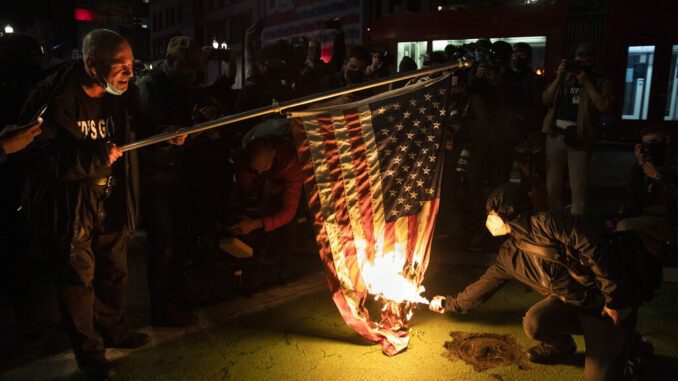
 I had my first encounter with a homegrown socialist in 1972. My husband was completing his medical training in Los Angeles when his brother Bill came to visit us, and, as it turned out, to school us in the evils of capitalism.
I had my first encounter with a homegrown socialist in 1972. My husband was completing his medical training in Los Angeles when his brother Bill came to visit us, and, as it turned out, to school us in the evils of capitalism.
Our first lesson came the day we showed Bill the row of yachts that were moored in the harbor at Marina del Rey. The sight we’d called “spectacular” was to Bill a loathsome display of “savage capitalism,” which would soon be replaced by a system that guaranteed “those boats would belong to the people.” The nationwide movement to “overthrow the establishment” was notoriously active during the Vietnam War, but we were stunned to learn that a Harvard Medical School student had joined it in Boston.
And that was only the beginning. Later that week, we learned that the Soviet system was Bill’s model for the equitable distribution of wealth and that China was a model of egalitarian medicine, because Chinese surgeons, when they completed an operation, would drop down on all fours and scrub the OR floor themselves.
Finally, and most alarmingly, we learned that Bill had fallen under the spell of Saul Alinsky’s new Rules for Radicals and had joined the Students for a Democratic Society (SDS), whose mission involved “the destruction of US imperialism,” the “achievement of a classless world,” and the mandate that SDS members “use their strategic position behind enemy lines to join forces in the destruction of empire.” It seems that visiting us in LA had been Bill’s foray behind enemy lines.
But not for long. By 1980, Bill was practicing medicine in Seattle and writing to us about Canadians who’d come down to Seattle to avoid long waits for treatment under their socialized health-care system. During family reunions, husband Phil and brother Bill would talk nonstop about the demands of practicing medicine — and the satisfaction they felt watching patients recover from a serious illness.
Bill never told us what made him abandon his mission to help establish a socialist America.
Perhaps he had simply accepted Churchill’s hard truth that “The inherent vice of capitalism is the unequal sharing of blessings. The inherent virtue of Socialism is the equal sharing of miseries.” Or perhaps Bill had noticed that his comrades fit Orwell’s observation that “to many people calling themselves Socialists, revolution does not mean a movement of the masses with which they hope to associate themselves; it means a set of reforms which we — the clever ones — are going to impose upon them — the lower orders.”
“The inherent vice of capitalism is the unequal sharing of blessings. The inherent virtue of socialism is the equal sharing of miseries.”
Whatever reasons Bill had for abandoning the notion that working for profit was evil, he never abandoned his resolve to subsidize the needy, that is, to redistribute his own income in ways that allowed him to measure the outcomes firsthand. In short, Bill’s progress matched that of most young radicals who, in the process of plotting a revolution, woke to the necessity of earning a living.
Had Bill lived to see the verb “woke” become synonymous with anti-capitalist, no doubt he’d use his stint as a socialist to remind the Bernie Bros that enacting “democratic socialism” would require a whole lot more that the redistribution of wealth. It would also require a redistribution of talent and drive — a feat no mortal could manage.
Advancing that hard truth just got harder now that the woke wing of the Democratic party is a heartbeat away from the presidency. The likelihood that today’s young radicals will one day disavow socialism just got slimmer now that it’s “The Rich Kids Who Want to Tear Down Capitalism.”
Or so they said in a November feature for the New York Times. With their own income secure, certain trust-fund kids will use their millions to end “intersectional oppression” and to “undo” the system that would allow others to prosper. They are card-carrying members of the Democratic Socialists of America, whose members support the “equitable distribution of resources” and oppose “free markets” and “private charity.”
They are a perfect fit for Emerson’s observation that certain reformers’ “bloated self-conceit” always “ends in hypocrisy.”
Exactly one month before readers were introduced to the rich-kid strut, New York Times columnist Ross Douthat admitted that “the economy under Trump was the best for the working class in two decades” and that “kicking him out of office means we go back to mass low-skilled immigration, back to wage stagnation.”
If Douthat’s prediction proves true, I’m betting that voters will perform a Reset Strut in 2022.
